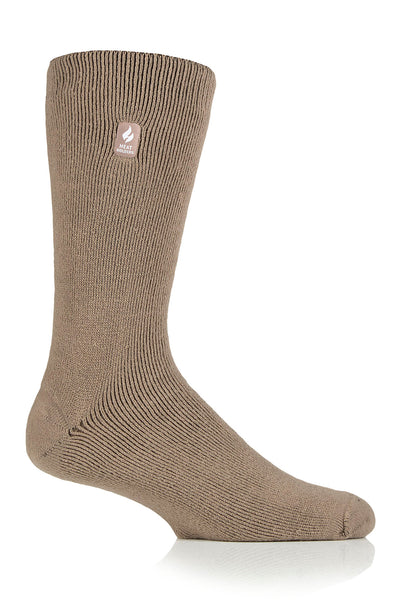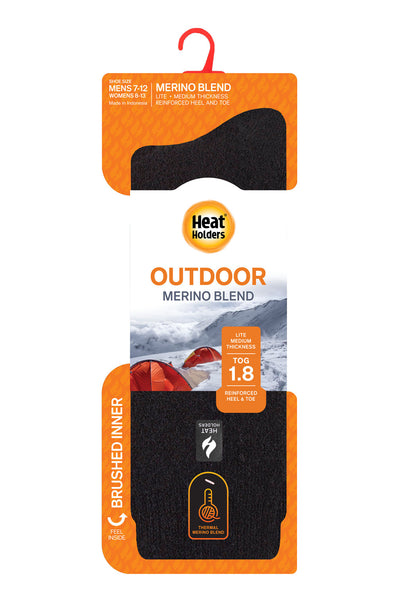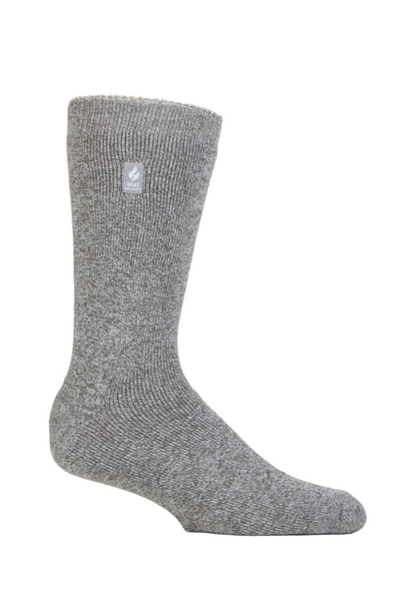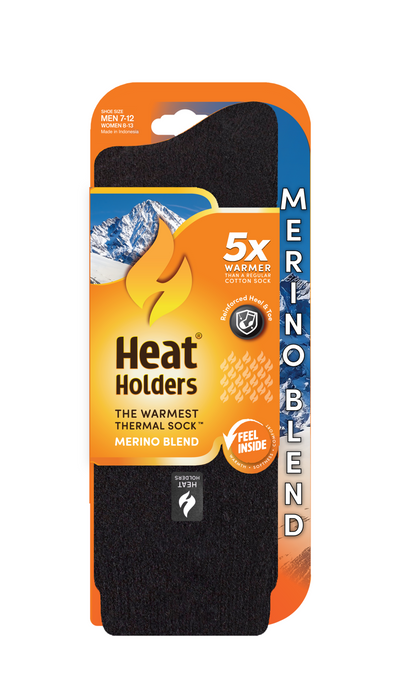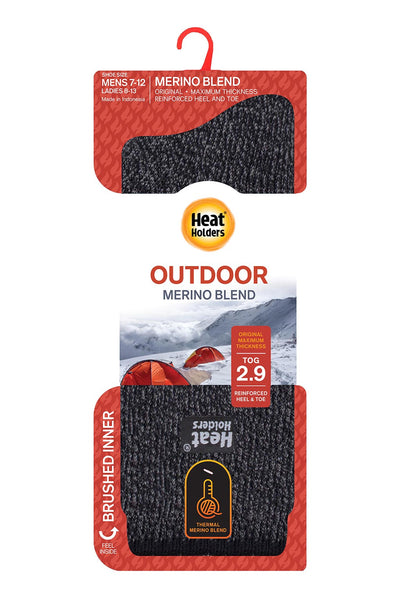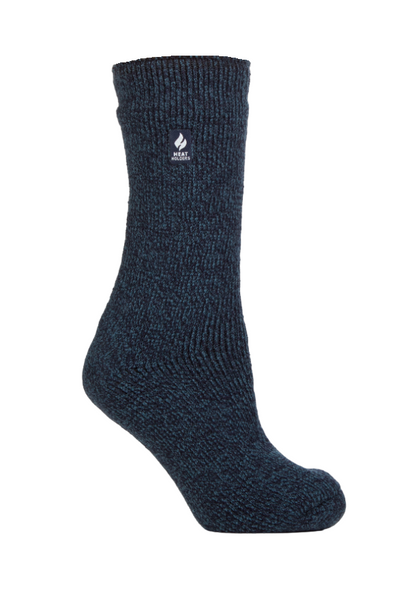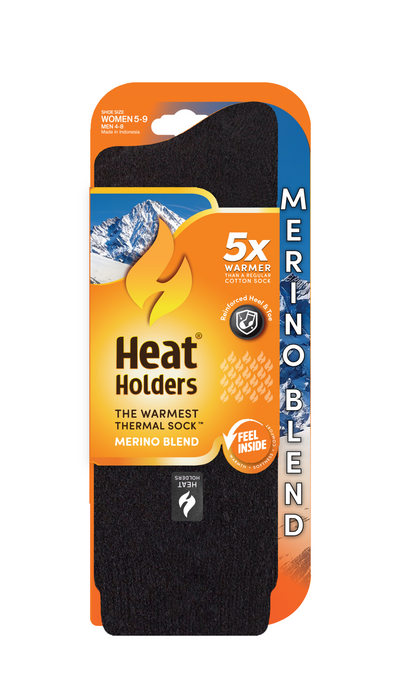If you're an avid hiker, you know the importance of having the right gear to ensure a comfortable and enjoyable experience on the trails. While most hikers focus on choosing the right hiking boots and backpacks, one often overlooked piece of gear that can greatly enhance your hiking experience is the humble pair of socks. In particular, merino wool socks have gained popularity among hikers for their unique properties and numerous benefits.
Understanding the Unique Properties of Merino Wool
Merino wool, sourced from Merino sheep, is a natural fiber that has several remarkable properties. The micron measurement of the wool determines its fineness and softness, with finer fibers being softer and more comfortable against the skin. Merino wool typically ranges from 16 to 24 microns, making it much finer than traditional wool.
One of the key advantages of merino wool is its exceptional ability to regulate temperature. The fiber has a natural crimp, which creates air pockets that trap heat and provide insulation in cold weather. At the same time, the moisture-wicking properties of merino wool help to keep your feet dry and cool in warmer conditions.
Another unique characteristic of merino wool is its odor resistance. Merino fibers have a natural antibacterial property that prevents the buildup of odor-causing bacteria, even after prolonged use.
The Science Behind Merino Wool
Scientists have extensively studied the properties of merino wool to understand what sets it apart from other materials. The crimped structure of the fiber allows it to trap a high volume of air, providing excellent insulation while remaining lightweight. This makes merino wool an ideal choice for hikers who need to regulate their body temperature in changing weather conditions.
Additionally, merino wool has a high moisture absorption capacity. It can absorb up to 30% of its weight in moisture without feeling wet, which helps to keep your feet dry and comfortable during strenuous hikes. Unlike synthetic materials, merino wool also can transport moisture away from the skin, allowing it to evaporate more easily.
Furthermore, merino wool is naturally elastic, meaning it can stretch and return to its original shape without losing its integrity. This elasticity makes merino wool garments more durable and resistant to wear and tear, ensuring that they last longer than other materials.
In terms of sustainability, merino wool is an environmentally friendly choice. Merino sheep can graze on natural pastures, reducing the need for synthetic fertilizers and pesticides. Additionally, the wool is biodegradable, meaning it will naturally break down over time without causing harm to the environment.
Why Merino Wool Over Other Materials?
When it comes to choosing hiking socks, there are plenty of options available, including cotton, synthetic materials, and blends. However, merino wool stands out as the preferred choice for many hikers.
Unlike cotton socks, which tend to retain moisture and take a long time to dry, merino wool socks are naturally moisture-wicking, keeping your feet dry and reducing the risk of blisters. The moisture-wicking properties of merino wool also help to prevent the growth of odor-causing bacteria, making them an excellent choice for multi-day hikes.
Synthetic materials, on the other hand, may offer quick-drying properties, but they often lack the breathability and natural temperature regulation of merino wool. Additionally, synthetic socks can sometimes cause discomfort due to their tendency to trap odors and moisture, leading to an unpleasant hiking experience.
Furthermore, merino wool is hypoallergenic, making it suitable for individuals with sensitive skin or allergies. Unlike synthetic materials that can cause irritation and itching, merino wool is gentle and soothing against the skin, providing a comfortable and irritation-free hiking experience.
Lastly, merino wool is a versatile material that can be used in various outdoor apparel, including base layers, mid-layers, and outerwear. Its natural temperature regulation properties make it suitable for a wide range of weather conditions, ensuring that you stay comfortable and protected during your outdoor adventures.
Alt text: A man looking at a flowing river
The Benefits of Merino Wool Socks for Hikers
Comfort and Fit: A Hiker's Priority
Comfort is paramount when it comes to hiking, and merino wool socks excel in this aspect. The natural softness and fine texture of merino wool make it incredibly comfortable to wear, even for long hours on the trails. The fibers are less likely to cause irritation or friction against the skin, reducing the risk of blisters and hot spots.
In addition to comfort, merino wool socks provide an excellent fit. The fibers have a natural elasticity, allowing the socks to stretch and conform to the shape of your feet. This snug fit helps to prevent slippage and ensures that your socks stay in place, reducing the likelihood of blisters caused by friction.
But let's dive deeper into the comfort aspect. Merino wool is not only soft, but it also has excellent moisture-wicking properties. This means that even if you're sweating profusely during a strenuous hike, your merino wool socks will keep your feet dry and comfortable. The moisture-wicking ability of merino wool helps to regulate the temperature of your feet, preventing them from becoming too hot and sweaty or too cold and clammy.
Furthermore, the fine texture of merino wool fibers creates a cushioning effect, providing extra comfort and support for your feet. This is especially beneficial when hiking on rough terrains or uneven surfaces, as the cushioning helps to absorb shock and reduce the impact on your feet and joints.
Temperature Regulation in Various Climates
One of the key advantages of merino wool socks is their exceptional ability to regulate temperature, making them suitable for a wide range of hiking conditions. Whether you're hiking in cold, wet conditions or sweltering heat, merino wool socks can adapt to keep your feet comfortable.
In colder weather, the natural crimp of merino wool fibers traps heat and provides insulation, helping to keep your feet warm. The moisture-wicking properties of merino wool also prevent sweat from accumulating and causing your feet to feel cold and clammy.
When hiking in warmer climates, merino wool socks excel at moisture management. They wick away sweat from your feet, allowing it to evaporate and keeping your feet dry. This helps to prevent discomfort, blisters, and the growth of odor-causing bacteria.
But let's not forget about the breathability of merino wool socks. The fibers have a natural ability to allow air to circulate, keeping your feet cool and preventing them from overheating. This breathability factor is especially important when hiking in hot and humid conditions, as it helps to prevent your feet from becoming sweaty and uncomfortable.

Odor Resistance and Hygiene Factors
Hiking can be a sweaty endeavor, and keeping your feet fresh and odor-free is essential for a pleasant hiking experience. Merino wool socks have a natural resistance to odor buildup, thanks to their antibacterial properties. Even after several days of continuous wear, merino wool socks remain fresh and odor-free, keeping your feet comfortable and hygienic.
Furthermore, merino wool is easy to care for, as it naturally repels dirt and stains. This means you can wear your Merino wool socks for extended periods without worrying about unpleasant odors or the need for frequent washing.
But let's talk more about the antibacterial properties of Merino wool. These properties not only help to prevent odor buildup but also contribute to overall foot health. By reducing the growth of bacteria, merino wool socks can help prevent common foot problems such as athlete's foot and fungal infections.
Additionally, merino wool has a natural ability to regulate moisture, which further contributes to foot hygiene. By keeping your feet dry and free from excess moisture, merino wool socks create an environment that is less favorable for the growth of bacteria and fungi.
So, not only do merino wool socks provide comfort, temperature regulation, and odor resistance, but they also promote foot hygiene and overall foot health. With all these benefits, it's no wonder that merino wool socks are a popular choice among hikers!
Choosing the Right Merino Wool Socks for Your Hike
Factors to Consider When Buying
When choosing merino wool socks for your hike, there are a few factors to consider to ensure you make the right choice:
- Weight: Merino wool socks come in different weights, ranging from lightweight to heavyweight. Consider the climate and terrain of your hike to determine the appropriate weight for your needs.
- Fit: Look for socks that provide a snug fit without feeling too tight or restrictive. Avoid socks that bunch up or slide down during your hike.
- Height: Merino wool socks come in various heights, including ankle, crew, and knee-high. Consider your personal preference, as well as the type of footwear you'll be using when selecting the height of your socks.
Care and Maintenance of Merino Wool Socks
Washing and Drying Tips
Proper care and maintenance will ensure the longevity and performance of your merino wool socks:
- Machine or Hand Wash: Check the care instructions on your socks, but most Merino wool socks can be safely machine-washed on a gentle cycle or hand-washed with a mild detergent.
- Avoid Bleach or Fabric Softeners: Harsh chemicals can damage the fibers of your Merino wool socks, so it's best to avoid bleach or fabric softeners.
- Drying: Air drying is recommended for merino wool socks to prevent shrinkage. Lay them flat or hang them to dry, away from direct sunlight or heat sources.
Ensuring the Longevity of Your Socks
To prolong the life of your merino wool socks, follow these tips:
- Avoid Abrasive surfaces: Walking on rough surfaces, such as rocks or pavement, can cause excessive wear and tear to your socks. Stick to designated trails whenever possible.
- Trim toenails: Long toenails can snag on the fabric of your socks, leading to holes or runs. Keep your toenails trimmed to prevent damage to your socks.
- Rotate your socks: Rotating between multiple pairs of socks allows each pair to fully dry and recover their shape between uses.
Debunking Common Myths About Merino Wool Socks
Are They Too Warm for Summer?
One common misconception about merino wool socks is that they are too warm for summer hikes. While merino wool does provide insulation for colder conditions, its natural moisture-wicking properties and breathability make it suitable for summer hikes as well. Merino wool socks can effectively regulate temperature by wicking away sweat and allowing it to evaporate, keeping your feet dry and comfortable in hot weather.
Do They Shrink After Washing?
Another concern some hikers have is whether Merino wool socks will shrink after washing. With proper care, merino wool socks should not shrink significantly. By following the washing and drying tips mentioned earlier, you can ensure that your socks maintain their shape and size for years to come.
Conclusion
Merino wool socks are a game-changer for hikers, providing unmatched comfort, temperature regulation, and odor resistance. Their unique properties and benefits make them a worthy investment for any hiking enthusiast. By choosing the right merino wool socks, properly caring for them, and debunking common myths, you can enhance your hiking experience and enjoy your time on the trails to the fullest.




